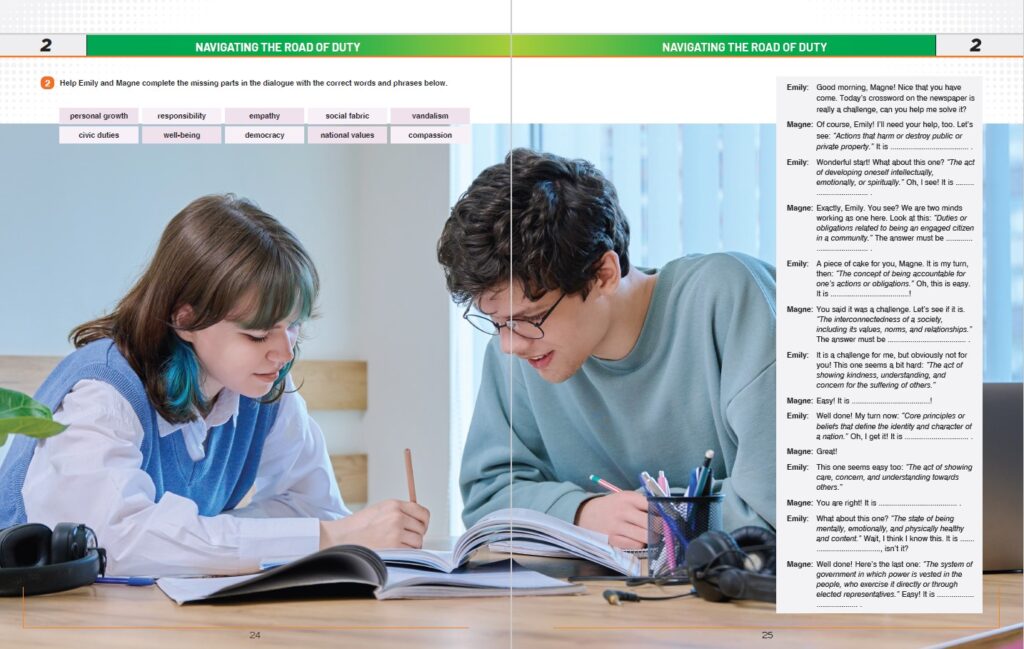dıalogue

As teachers, fostering open and meaningful conversations in the classroom is essential. The Dialogue section provides structured prompts and scenarios that encourage students to discuss various values-related topics. These dialogues help students articulate their thoughts, listen actively to their peers, and develop critical thinking skills. By engaging in these conversations, students learn to appreciate different perspectives and cultivate empathy and understanding. The interactive nature of these activities ensures that students are not merely passive learners but active participants in their education.
Pathways: Values in Action has the following five-pronged approach in activating dialogues to inculcate values:
Dynamic
The Dialogue section features structured prompts and scenarios that encourage students to engage in dynamic, back-and-forth exchanges. These discussions help students dynamically articulate their thoughts, emotions, and perspectives on values-related topics, fostering an energetic and engaging learning environment.
Deliberate
By guiding students through carefully crafted dialogue activities, teachers can cultivate deliberate critical thinking skills. Students learn to consider alternative viewpoints, weigh evidence, and develop nuanced stances on complex moral and ethical issues.
Deep
The interactive nature of the Dialogue activities ensures that students delve deeply into the topic, moving beyond surface-level understanding. Through these engaging discussions, students explore the underlying principles, assumptions, and implications of values-based topics.
Diverse
Effective values education promotes exposure to a diversity of perspectives and lived experiences. The Dialogue section facilitates discussions that allow students to hear and consider viewpoints that may differ from their own, encouraging empathy, open-mindedness, and cultural competence.
Democratic
The democratic structure of the Dialogue activities gives all students an equal voice, creating a safe and inclusive environment for the exchange of ideas. This empowers students to express their views, challenge assumptions, and participate as active, engaged citizens in the learning process.
contact us
Have any questions? Please feel free to reach out using the form below, or connect with via email at info@piermontpress.com. We’ll get back to you as soon as possible.
